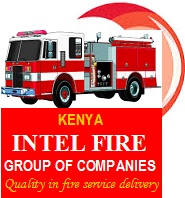Seminar: 1st Fire Marshals Workshop
Ksh 40,600.00
Safety Tips
Meet a seller in public place and be sure to pay only after collecting your item.
Additional Info
| Mobile | 0733386633 |
| Street | Nairobi, CBD |
| City | Nairobi |
| State | Nairobi County |
| Country | Kenya |
| Zip/Postal Code | 254 |
Photo Gallery

|

SEMINAR: THE 1ST FIRE MARSHALS WORKSHOP
Summary:
Duration : Two (2) days (26th – 27th February, 2015)
Venue : Methodist Guest House & Conference Centre, Nairobi
Cost : Kshs.40600/= (inclusive VAT) per delegate
1.0 Why you should attend this workshop
No organization can afford to ignore the recent radical changes in Fire Safety Law which affects all organizations in Kenya. Companies, organizations and individuals who employ staff or volunteers are now wholly responsible for their own legislation compliance and management of fire safety.
There have been also major changes to the organization and role of the fire service including the way fire cover and response is provided and the impact of the new county enforcement regime and the imposition of charging for certain non-emergency services.
Employers are now wholly responsible for ensuring that the law is complied with and directors, owners, employers and managers are personally responsible. In Kenya, the legislation creates the roles of ‘responsible person’ and ‘competent person’
1.1 What you will learn from the experts
By the end of this course you will be able to:
• Understand the obligations imposed on organization by the Kenyan law
• Describe the legal responsibilities of companies and individuals for legislation compliance and the management of fire safety
• Understand the changes to the role and function of the fire and rescue services, the way they respond to fire calls and how they provide fire intervention
• Understand the role of the ‘Duty Holder’ (the Responsible Person in Kenya).
• Eliminate and mitigate fire risks, manage the use of dangerous substances, and maintain fire safety measures including fire detection systems and emergency routes and exits
• Understand the differences between the requirement within building regulations, approved codes of practice and fire safety regulations and the Advanced Approach permitted by BS 9999: 2010
• Describe measures for cost-effective compliance
• Describe the duty of care an organization owes to ‘Relevant Persons’
• Undertake fire risk assessments, review and maintain these and produce plans for implementation of remedial measures
• Use relevant British and other standards to support a fire safety programme
• Understand how to manage a comprehensive fire safety programme.
1.2 Course Outcome
• Introduction to risk: risk management and risk reduction
• Fire Risk Assessment
• Risk assessment tools, templates and proformas; using risk scoring
• The Regulatory Reform (Fire Safety) Order 2005: the role of the ‘responsible person’,’ the competent person’
• Legislation in Kenya
• Elimination and mitigation of fire risks,
• The duty owed to ‘Relevant Persons’
• Means of escape requirements
• Provision of information, maintenance, co-ordination and co-operation, training, record keeping,
• Using BS 9999: 2010 as an alternative to Approved Document compliance
• Fire protection of buildings including compartmentation, fire resistance, fire detection and alarm systems, firefighting equipment, fire suppression systems
• Suggestions for cost-effective compliance
• Issues involving electrical installations and equipment
• Undertaking fire risk assessments
• Ensuring provision of adequate means of escape
• Special problems of people with disabilities
• Managing fire safety in listed or heritage buildings
• Managing fire safety during refurbishment or when contractors are present
• Appointing competent consultants and contractors
• Training of staff and maintenance of records
• The role of fire wardens as competent persons
• Liability issues, enforcement civil and criminal penalties
• Worked example of a risk assessment using a template
• Risk assessment exercise
1.3 Who should attend?
Officers commanding fire station; Emergency Response Managers; Safety Policy Makers; Managing Agents; Building surveyors and engineers involved in implementing legislation; consultants involved in fire safety and fire safety legislation.
Safety Tips
Meet a seller in public place and be sure to pay only after collecting your item.
